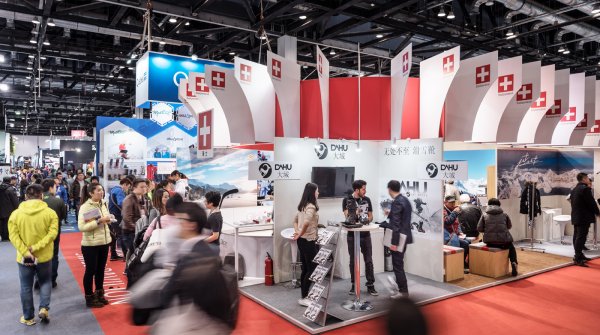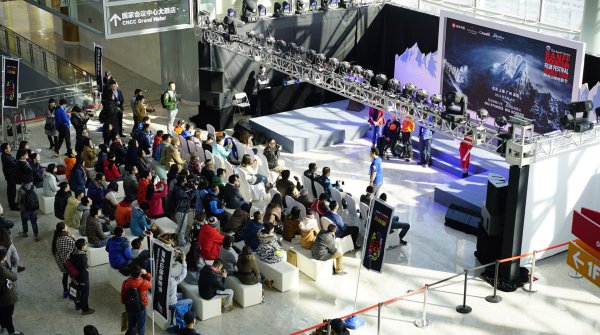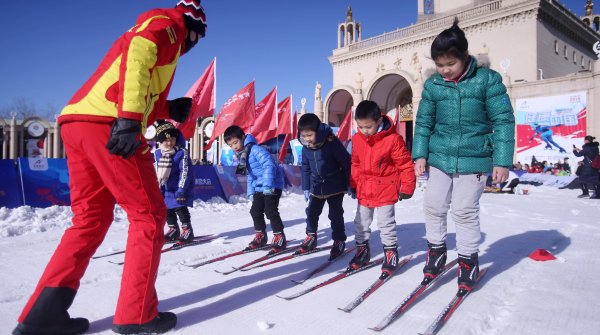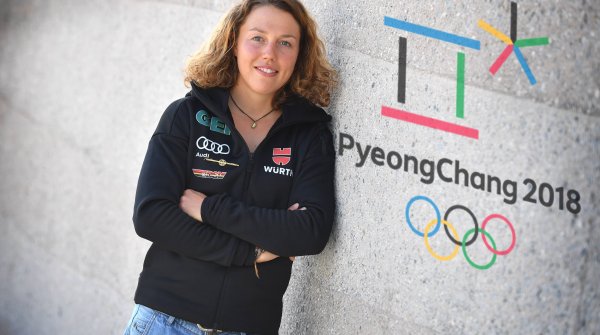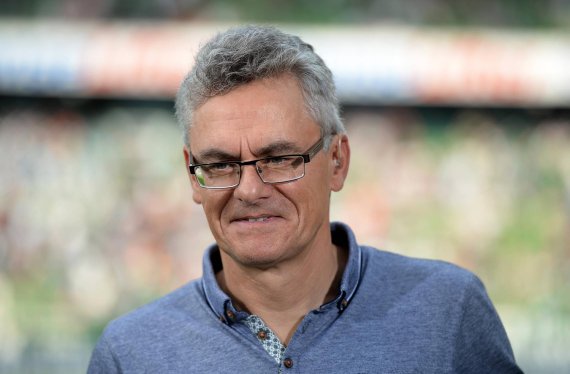
For a couple of years now, Europe’s big soccer clubs have discovered China as a new, important sales market and are now using media-effective appearances to vie for the country’s favor.
At the same time, China is putting out its feelers towards the West, and is searching for professional help to further develop its own league and the Chinese national team.
Wynton Rufer: From the Bavarian scare to FIFA ambassador
A Football Talk on this topic took place during ISPO SHANGHAI , with experts such as former Bundesliga pro and FIFA ambassador Wynton Rufer present.
The New Zealander, employed by SV Werder Bremen for six years and, with eight goals in twelve face-offs against FC Bayern München, a true Bavarian scare, doesn’t just know the ropes of the German Bundesliga. He also spent two years in Japan with JEF United Ichihara.
“Kiwi” Rufer currently makes appearances as a FIFA ambassador and cooperation partner of the DFL in the Asian-Pacific region. ISPO.com spoke with the 54-year-old about the significance of soccer in China, how the arms race is being stemmed in the Chinese Super League, and what the DFL has planned in Asia.

ISPO.com: Mr. Rufer, you are a former Bundesliga striker and now a FIFA ambassador. How did the collaboration with ISPO, and most recently the appearance at ISPO SHANGHAI, come about?
Wynton Rufer: During my time as a Bundesliga player with Werder Bremen, I was invited to sponsorship meetings at ISPO MUNICH every year. So the connection has already been there for twenty years. The current contact and engagement in Shanghai came about through a mutual friend in Munich, and it’s a very lovely reunion.
You’ve remained loyal to soccer, even after your active career, and now work as an ambassador for FIFA. What do your assignments in this role look like?
I work in the Technical Study Group, which has been led by Marco von Basten for six months now. After each tournament, there’s an extensive statistics book that’s created by former players or coaches.
I was recently at the Confederations Cup in Russia, where the Germans once again proved their caliber. Also a focus in the Technical Study Group was the topic of video assistant referees.
Everything might still not be running smoothly, but overall the video assistant referee is an improvement for soccer.
Want to work for FIFA, too? How to score a job with the global association
content: 77285138
Wynton Rufer: “Development in global soccer can’t be stopped”
During the Football Talk, you mentioned that you’re also contributing to a project by the DFL. What is the content there?
The Bundesliga wants to expand its name recognition abroad, and I’m one of the ambassadors to represent the DFL for this purpose in the Asian-Pacific region. China is a major market and immensely important, especially considering the soccer cooperation agreement closed between Germany and the People’s Republic of China in November 2016.
One part of this cooperation is also the incorporation of the Chinese U20 national team into the German Southwest regional league...
Correct. Politically, it’s a heavily discussed topic right now, and I can understand the displeasure of the small clubs in the regional league. But it’s my opinion that Germany and the DFB should support small soccer nations. From a global perspective, this development can’t be stopped.
There’s derisive talk in the media of the Far East regional league, among other things. It’s a fact that globalization is ubiquitous, but where do you draw the line?
It’s difficult to say. That could definitely make for several different opinions and long discussions. In principle, however, I believe that the smaller nationals need to be brought to the forefront.
I’ve done soccer development work in New Zealand for 20 years now, and the reward was seven players from my soccer school at the Confederations Cup. They’re free to take on the model here in China.
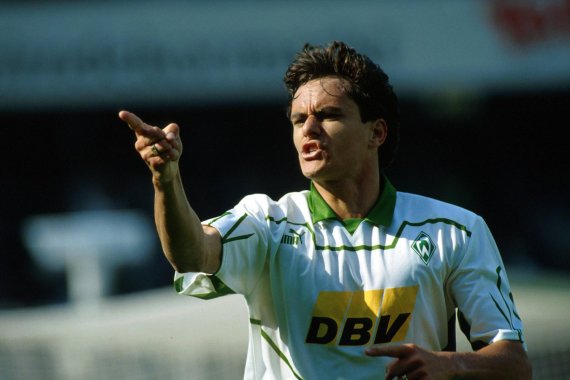
End of the transfer boom helping China’s national team
China is already making massive investments in infrastructure and the promotion of young talent, and the published figures are huge. How would you rate these efforts?
Similar to the video assistant referee already mentioned, it will definitely take two or three years for these measures to be established. 50,000 soccer spaces and 20,000 soccer academies, that is the right path – and China definitely has enough money for it.
What was true in the domestic Super League for a long time: The bigger the name and transfer total for the committed player, the better. The spending knew no limits. Not exactly optimal conditions for young Chinese players...
China is learning from its mistakes. After the 50 million euro transfer of Carlos Tevez, there’s now a rule that, for a transfer of a foreign player, the same amount also has to paid as tax to the Chinese Soccer Association.
There’s also a foreigner limit. So the right decisions are being made – and they’re being made quickly.
Do you believe that the Super League is ready to stand up to the great international stars?
In the beginning the big names were definitely necessary, similar to the J-League in Japan. There they signed on one Pierre Littbarski, invested a lot of money. But that’s changed over the years. More money put into the youth work, and now the J-League manages just fine without big international names.
Besides, the transformation in youth work in Germany wasn’t that long ago, either. In 1998, 2000, Germany was at the bottom, and then came former players like Matthias Sammer and changed things.
China’s president Xi Jinping is a proven soccer fan, and is rapidly driving the promotion of the sport forward. The national team is to be the pride of the nation. How far off is China from the chief of state’s wishes?
That could still take a while. With luck, however, China will still be at the 2022 World Cup. Yet again, this is a good comparison with Japan and South Korea. The professional league was founded in 1992, and six years later both teams were present at the World Cup – and have since qualified regularly.
It’s just a time-intensive process. A World Cup in China would be an important boost for the sport.
What sports are popular in China? Click here for the most popular sports...
- ISPO awards
- Mountain sports
- Bike
- Design
- Retail
- Fitness
- Health
- ISPO Job Market
- ISPO Munich
- ISPO Shanghai
- Running
- Brands
- Sustainability
- Olympia
- OutDoor
- Promotion
- Sports Business
- ISPO Textrends
- Triathlon
- Water sports
- Winter sports
- eSports
- SportsTech
- OutDoor by ISPO
- Heroes
- Transformation
- Sport Fashion
- Urban Culture
- Challenges of a CEO
- Trade fairs
- Sports
- Find the Balance
- Product reviews
- Newsletter Exclusive Area
- Magazine

